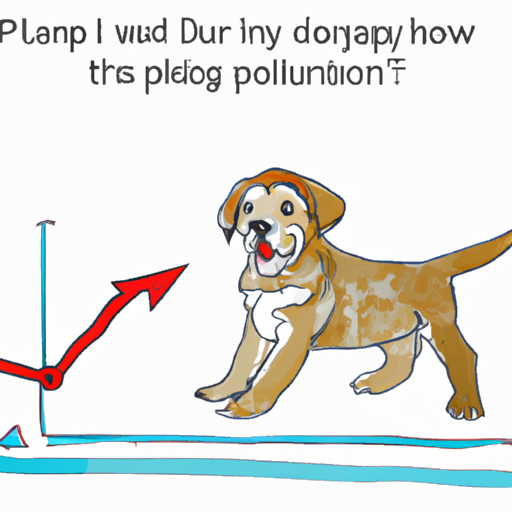As a caregiver for a furry friend, you might find yourself asking, “when do dogs stop growing?” This is a common question among dog owners, particularly those who have just welcomed a puppy into their home. Understanding your dog’s growth pattern can provide critical insights into their health and wellbeing.
Understanding Your Dog’s Growth
The first thing you need to understand is that growth rates and patterns vary widely among different breeds. Larger breeds tend to grow more slowly but for a longer period, while smaller breeds usually stop growing much earlier.
Here’s a simple breakdown by breed size:
| Breed Size | Approximate Age When Growth Stops |
|---|---|
| Small | 6-8 months |
| Medium | 12-15 months |
| Large | 18-24 months |
Factors Influencing Your Dog’s Growth
There are several factors that can influence your dog’s growth rate:
- Genetics: This is the primary determinant of a dog’s size and growth rate.
- Nutrition: Proper nutrition is crucial for healthy growth. Your dog’s diet should be balanced and adequate for their breed and size.
- Health: Illness or parasitic infections can stunt your dog’s growth.
How To Tell If Your Dog Has Stopped Growing
When your dog has ceased growing, several tell-tale signs can clue you in:
- Their paws, which previously grew at a much faster rate, will look proportionate to their body.
- They will have reached sexual maturity, which usually occurs after physical growth has slowed or stopped.
- A visit to the vet can confirm whether or not your dog’s growth plates have closed.
Caring for Your Growing Dog
As your dog grows, their dietary needs will change. As a caregiver, it’s crucial for you to adjust their diet accordingly. Puppies require more protein and fat, while adult dogs benefit from a balanced diet rich in nutrients.
Here are some tips on caring for your growing dog:
- Start with a high-quality puppy food for the first year (or longer for larger breeds).
- Gradually transition them to adult dog food when they’ve stopped growing.
- Regular vet check-ups are essential to monitor their growth and overall health.
FAQ’s
Q1: Can I predict my dog’s final size?
A: While genetics play a significant role, it’s hard to predict a dog’s final size accurately. However, a rough estimate can be made based on the size of the puppy’s parents and the breed’s average size.
Q2: Can diet influence my dog’s size?
A: Yes, a poor diet can stunt growth, but overfeeding can lead to obesity. It’s essential to provide a balanced diet.
Q3: Can neutering/spaying affect my dog’s growth?
A: Neutering/spaying can slightly affect a dog’s growth, as it can delay the closure of the growth plates. However, the overall impact on final size is negligible.
In conclusion, understanding when dogs stop growing is an integral part of responsible dog ownership. As a caregiver, your role is to provide the support and care your furry friend needs during this critical phase of their life.



